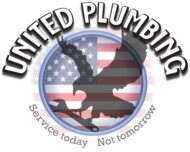Rust inside your pipes and on your plumbing fixtures can be an unpleasant sight, discolor your water, and if left untreated, eventually lead to the deterioration of your plumbing. Rusty plumbing not only affects the appearance and lifespan of your pipes but can also compromise the quality of water flowing through them.
What Causes Rust in Plumbing?
Rust forms when iron, oxygen, and moisture meet, causing those unsightly discolorations on your pipes and drains. Hard water is often the culprit, as it is rich with minerals like iron. Older metal pipes are particularly susceptible to rust as well and can corrode over time.
Plumbing systems are particularly susceptible to rust due to the constant presence of water, especially when there's an imbalance in the water's pH level or high mineral content. Another reason for rust formation is the age of the pipes. Older pipes, particularly those made of galvanized steel, have a higher propensity to rust over time.
Cleaning Rusty Pipes
Cleaning rusty pipes can be an essential maintenance task to ensure longevity and efficiency. For minor rust issues, homeowners can use a mixture of lemon juice and baking soda to create a paste. Applying this paste to the affected area and letting it sit for a few hours, followed by a good scrub, can help in removing surface rust.
For more extensive rust or internal pipe rust, you might consider vinegar. It's a mild acid and acts as a rust dissolver. By plugging a section of the pipe and filling it with vinegar for a while, then flushing it, you can potentially dissolve some of the internal rust. However, always exercise caution when using any cleaning method, as the pipes can become weak or damaged if cleaned too aggressively.
If you find minor rust splotches on your plumbing fixtures, don’t panic. They’re easily treatable, and often you will have what you need to remove them sitting in the cupboards of your home. Here are just a few tried and true rust removal methods:
- Cream Of Tartar - This popular powder can be used for more than just baking. Mix it into a paste with a little water and let it sit on your rust stains for a while before wiping them clean.
- Vinegar And Baking Soda - A tried and true cleaning method. Three parts baking soda to one part vinegar is the magic ratio. Apply it to rust stains for around an hour, then wipe away.
- Pumice Stones - Despite what their name might imply, pumice stones won’t scratch or damage your surfaces. Apply the stone gently to a wet surface to clean it.
Once your plumbing fixtures are rust free, what can you do to prevent rust from rearing its ugly head again?
Preventing Rust in Your Plumbing
Preventing rust is the key to ensuring a long life for your plumbing system. Consider installing a water softener if your water supply is hard, as minerals can accelerate rusting. Regularly inspect your pipes for leaks, because standing water can promote rust. Where possible, insulate your pipes to reduce condensation, which can lead to rusting.
Another effective prevention method is the use of phosphoric acid-based cleaners, which leave behind a protective layer that prevents rust formation. However, use them with caution and always follow the manufacturer's instructions.
Wipe Down Surfaces
The longer water sits on a surface, the higher likelihood rust will form. Wiping any excess water away after using your tub, shower, or sink won’t give rust a chance.
Install A Water Softener
Hard water often contains iron, an essential component to rust. A water softener can go a long way toward filtering out the iron from your water. Adding an iron filter can filter your water even further. A plumber in Springfield, Missouri can help with installation.
Change Your Piping
Iron pipes and rust go hand in hand, so replacing them with modern PEX piping can eliminate your rust problem altogether. No unsightly corrosions or stains either.
When to Call in the Professionals
While minor rust can often be addressed on your own, it's crucial to recognize when professional intervention is needed. If you notice a significant reduction in water pressure, discolored water, or visible extensive rust on the exterior of your pipes, these could be signs of severe internal rusting or pipe degradation.
If any of these happen, it's best to consult with a plumbing professional. We can assess the situation, advise if the problem can be eliminated with water pipes repair, or if replacement is the more prudent option.
Don’t let rust ruin your plumbing. With these handy tips, you know what causes rust, how to prevent it, and how to treat it. If you ever need a hand with plumbing installation or repairs, call on us here at United Plumbing. A well-maintained plumbing system not only provides convenience, but also safeguards the health and well-being of your family.

